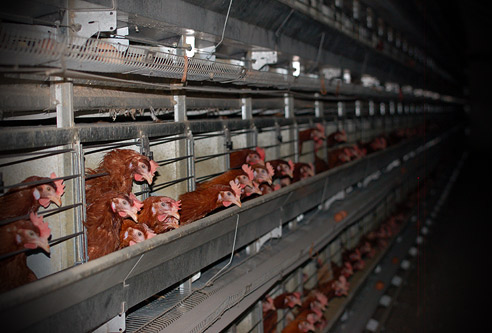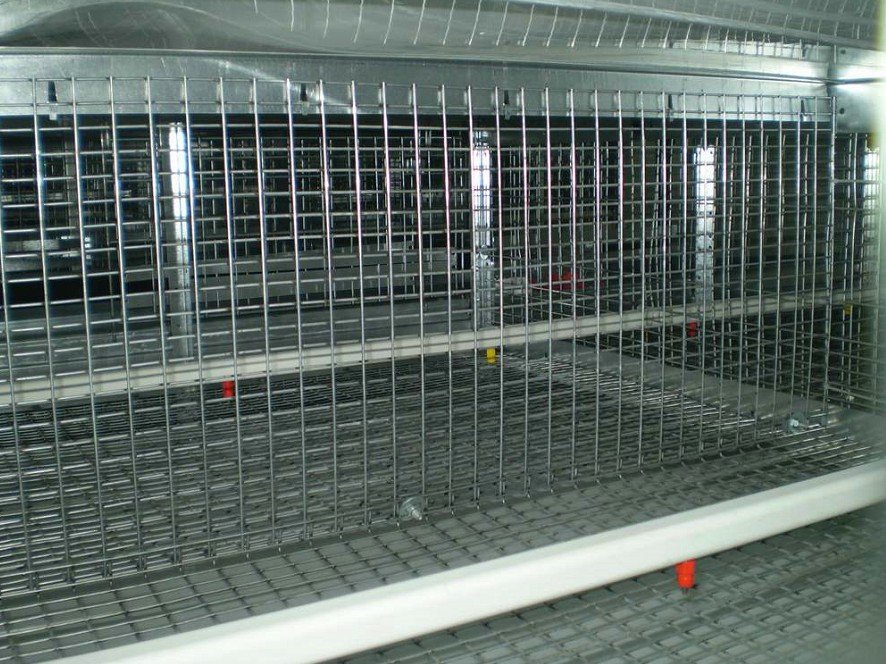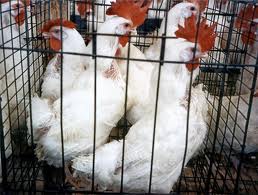Farming, the process of adopting various methods for creating food for the survival, has been an important part of human cultivation since the existence of mankind. Farming is a much broader term that is used for various different kinds of farming methods collectively. Farming is not restricted to the growing of crops only, but even the raising of cows, goat and domestic birds like chicken, ducks; turkey’s etc also comes under this head. Here our focus will be on hens or chickens that are raised in battery cages. What are the reasons for adopting this method? How effective this method has been in recent years and what negative outcomes have been observed while raising hens through battery cages.
What are battery hens?
The very first thing which gains our attention is the word “battery hens”. What is meant by this word and what it refers to? You will hear the term battery hens in farming more often or this is also pronounced as factory farming as well. This is a confinement system that is primarily used for those hens which are capable of laying eggs. This is called battery cage because you will find a system of cage that are similar in structure and are connected with each other but separated by dividers. This method is adopted so that a large quantity of hens could be accommodated in a very limited space so as to reduce the cost and to gain the same level of output, that is, production of eggs. This method of poultry farming has been in the limelight since the discovery of such that being practice for the egg laying hens. Animal welfare associations have always showed their complete disapproval of this system being practiced as, according to them, this intensive poultry farming method is not only un-ethical but could also result in some serious health problems for both, hens and humans.

What happens in battery cages?
The reason animal welfare has raised their voices against these un-ethical poultry cages are due to the sufferings bared by chickens living in those cages. A standard size of any battery cage is approximately 61 cm wide and 51 cm deep. Normally, each cage is occupied with six hens at a time resulting in so much less space for every hen that they barely can move easily. A hen normally requires 2000 cm2 to freely open her wings and also a space of 600 cm2 to lie down with ease. But in these chicken battery cages, the total space available to each hen is around 483 cm2 and 432 cm2 respectively. From this we can easily imagine what are hens going troughs in those cages. Being completely jam packed with other hens that they cannot even sit properly without being in contact with other hens has led to many chicken health problems as well. Another terrible practice that is being conducted for the caged hens is the slicing of their beaks. This process is performed without any proper medication and without giving any pain relief to hens before or after this process. This is done so that any chicken that might have aggressive behavior due to the intensive poultry farming method could not harm other hens with its beak.
How these farming methods beneficial to humans
As the population was rising, so was the daily need for various food items that also included eggs. In order to cater this problem, farmers came up with this method of battery hen farming in 1940. Through this method, it was experienced that a large quantity of production of eggs could be made available to the population and less costs were incurred that encouraged the farmers to ignore other problems that were being faced by chickens in cages.
What risks are involved?
The most important risk that is being ignored in this entire situation is the health of the hen that is kept for laying eggs. With such less space for every hen, there is a greater chance that if one chicken gets sick, than others can catch that disease more quickly. One more thing that is observed in these battery cages is that people working there do not keep proper cleanness. Because of this, the excretory material of all those chicken can cause some serious accumulation of bacteria that could also affect on the health of eggs that are being laid by those hens. These eggs when reaches to the population can ultimately result in serious health problems that could lead to any disease in humans or even can become the cause of death.
These are some of the facts of battery hen farming that are essential for every individual to be known about and also necessary actions should be taken by poultry welfare in this regards. As this could help in safeguarding the poultry health and also the health of your family and also could lead to the shutdown of such cruel system and replace it with such a method that could be safe for both, humans and animals.


The law on battery farming of chickens for egg-laying varies in different countries. I don’t know where Farhansheikh lives, but in the EU the law has changed on this, although I dare say a lot of countries still do not obey it. As from January 2012 beak-trimming was supposed to stop, and hens are now supposed to live in ‘enriched’ cages. This means more space, perches etc. It also means that the old smaller cages were simply sold to other countries I am afraid. In a battery farm near me (now closed) there were 40,000 birds in one shed. Yes, that is FORTY THOUSAND. They were kept one cage above the other so that the droppings would fall through all the cages before eventually ending up on the ground. This would be cleaned out when the hens were 15/18 months old and the hens themselves were taken to be slaughtered for pet food or frozen meals. Take a close look at the chicken breast in that TV dinner – – if it looks tiny it is probably from a battery hen. They are bred to have very little flesh on them. I took on 8 of these chickens after their lives in an egg factory. It brought tears to my eyes when I realised this was the first time in their lives that they had been able to spread their wings, dig for food or see the sun. The first time it rained they were so scared they did not know what to do. Yet their instincts are completely intact. The very first time I let them out of their house into the garden they immediately began to dig and forage. They did not recognise proper food having only been fed on pellets – sweetcorn, grapes and other chicken treats they just walked past (well, at first they did). Eggs just dropped out of them and it took them a week or two to learn to nest but they soon did so. In the factory farm their sheds were lit artifically so that their bodies had no rest from egg-laying. The cause of all the cruelty – and it is cruelty – is the rising human population and the desire for cheap food. The only answer to this problem and almost every other global problem is for us to limit the size of the human population. There are too many of us on the planet, so the soil is becoming depleted by over-farming, animals are treated as units of production and we are fouling our own environment. We humans are such clever animals that we have made medicines so we all live longer and mostly do not die in infancy. We are turning OURSELVES into “battery people” in this crowded world. We now have to be clever enough to see what we have done and start to reduce world population so that we have clean air to breathe, enough water and food crops can be grown at their more natural rate. Best of all, we could then stop inflicting such suffering on chickens and pigs.
its sad that our world is driven by greed
It is good suggestion to stop battery system, based on the idea of preventing possible health issues or protecting bird’s natural behavior or welfare as Mr.Farhansheikh described . And it is a better idea to prohibit the eating of animal protein to protect bird’s right.
The fact is that it is so hard to achieve that goal that few people will put forward that suggestion, because of the fully aware of the human’s greed.
In Europe Union, the prohibition of battery system has taken effects, but is this really improve the bird’s walfare? I doubt it.
I don’t know the actual conditions of boiler production in Europe Union. So, I can not tell the improvement of bird walfare, e.g. broiler walfare, from cage system to floor system, since cage system can have better environment with less stocking density, while floor system can make the bird suffer from high stocking density or with the purpose to get back the investment ( in land, equipment, and management) and make profit. The code just stops the opportunity to make good use of limited land resources and provide birds good living environment.
Personally I feel that both the battery and deep litter systems have their own merits and demerits.However, it would help if one can stay objective while expressing a view. There are reasons for both systems exist today.A poultry enthusiast , may not share the same view as a poultry businessman, for obvious reasons.But if the world reverts back to the deep litter system, protein sources such as eggs and chicken would become more expensive, and other protein sources would be sought out. So by benefiting one secies, another could get affected.
Dear Mr. Sheik:
I totally understand your feelings and what you are advocating and I am not defending battery cages. But, one thing is the welfare of the hen, and another is to translate this to the “health of the egg” as you mention it. Eggs in a cage system are removed from below the hen very quickly and therefore they are NOT in contact with fecal material. They are easy to clean and cleaner and on itself, healthier. The modern farms are cleaner than you can imagine, because they know what’s at risk. The biosecurity protocols are very strict. So eggs coming from a well managed cage system are as safe as anyother or safer. Do not equate cage to unsafe eggs. Thanks.